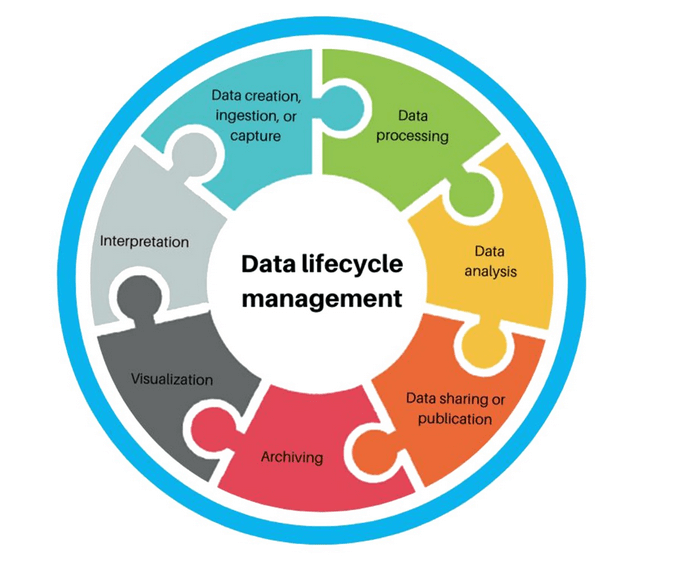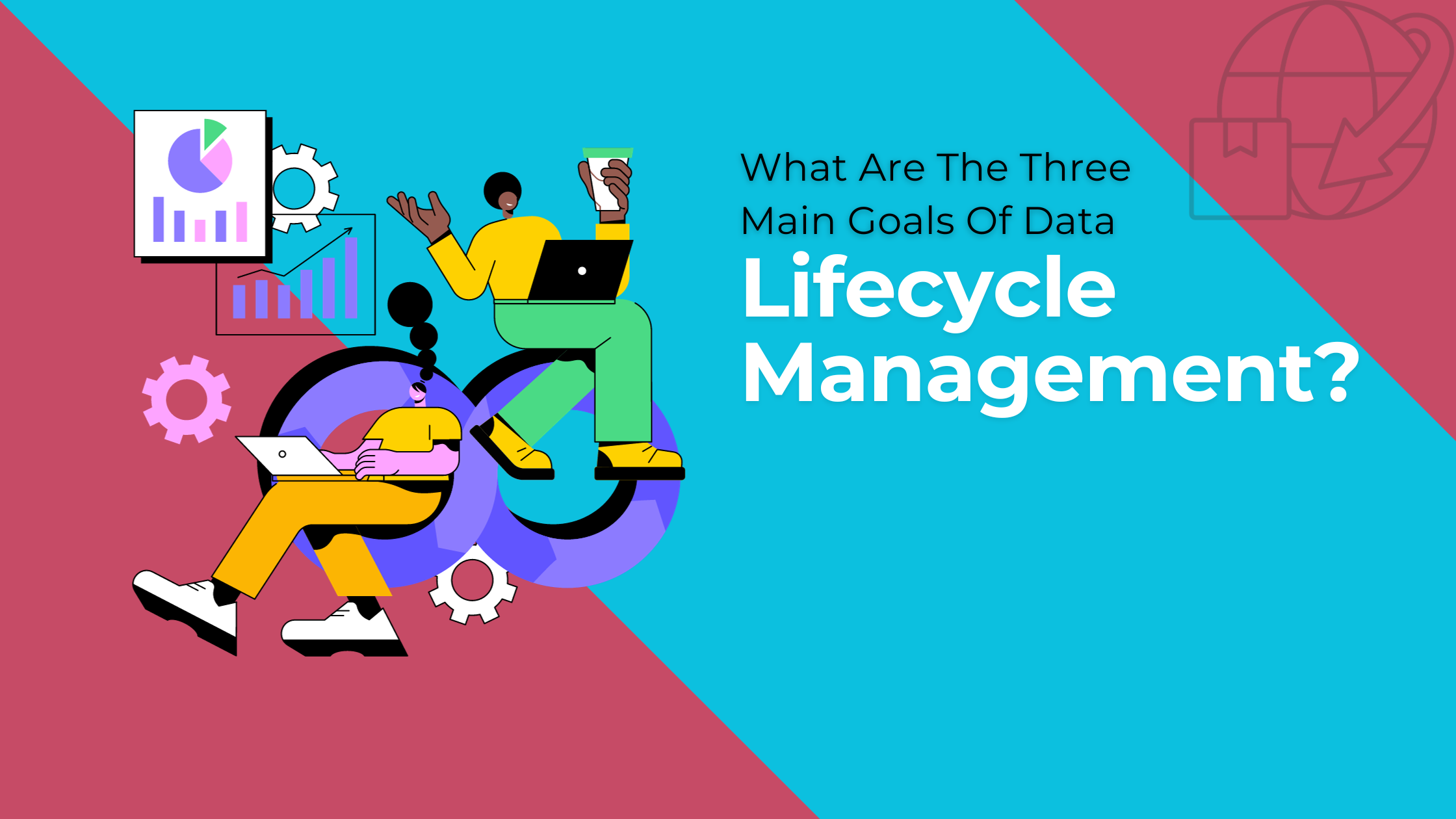
What Are The Three Main Goals Of Data Lifecycle Management?
Data Lifecycle Management (DLM) is a framework for managing data throughout its lifecycle—from creation to deletion. With the global data volume projected to reach 180 zettabytes by 2025, effective DLM ensures that organizations handle their data securely, efficiently, and in compliance with regulations. This article explores the three main goals of Data Lifecycle Management and their significance in the digital age.
What is Data Lifecycle Management?
Data Lifecycle Management refers to the policies, processes, and technologies used to manage data through its lifecycle. This lifecycle includes stages such as data creation, storage, usage, sharing, archiving, and eventual deletion. DLM ensures that data is handled in a way that aligns with organizational goals, legal requirements, and operational efficiency.
The Three Main Goals of Data Lifecycle Management

At its core, Data Lifecycle Management focuses on three primary objectives:
1. Ensuring Data Security and Privacy
One of the fundamental goals of DLM is to protect sensitive data from breaches, unauthorized access, and misuse. With 15 million data breaches reported in 2022, robust security measures are crucial. DLM frameworks enforce encryption, access controls, and compliance with data protection regulations such as GDPR and HIPAA.
2. Enhancing Data Usability
DLM ensures that data is organized, accessible, and usable for decision-making. Research shows that up to 73% of organizational data goes unused due to poor management. By streamlining storage and retrieval, DLM allows stakeholders to leverage data effectively to drive innovation and growth.
3. Ensuring Compliance and Governance
Data compliance is critical for avoiding legal penalties and reputational damage. DLM frameworks ensure adherence to data retention policies and regulatory requirements, such as CCPA and SOX, reducing compliance risks by 45%.
Benefits of Effective Data Lifecycle Management

Implementing a strong DLM strategy offers several advantages:
1. Cost Optimization
Efficient data management reduces storage costs by archiving or deleting unnecessary data, saving organizations up to 30%.
2. Improved Decision-Making
Organized and accessible data enables faster, data-driven decisions, enhancing operational efficiency.
3. Risk Mitigation
DLM minimizes risks associated with data breaches, compliance violations, and data loss, protecting organizational assets.
Key Practices for Effective Data Lifecycle Management

Adopting these practices can help organizations achieve the main goals of DLM:
1. Data Classification
Label data based on sensitivity and usage to prioritize protection and access levels.
2. Automation Tools
Use tools like IBM InfoSphere or Microsoft Purview to automate data archiving, monitoring, and deletion processes.
3. Regular Audits
Conduct periodic audits to identify redundant or obsolete data and ensure adherence to governance policies.
4. Employee Training
Educate staff on data security and compliance protocols to prevent accidental breaches or mishandling.
Challenges in Data Lifecycle Management
While DLM offers immense benefits, organizations often face these challenges:
- Scalability: Managing growing volumes of data requires advanced infrastructure and tools.
- Data Silos: Isolated systems hinder seamless data sharing and collaboration.
- Compliance Complexity: Navigating multiple regulatory frameworks can be overwhelming.
Why Choose TaskVirtual for Data Lifecycle Management?
provides expert DLM solutions tailored to your organization’s needs. Here’s why businesses trust us:
- Comprehensive data audits to identify and address lifecycle inefficiencies.
- Automation of data management processes for improved accuracy and efficiency.
- Customized strategies for compliance with global data protection regulations.
- Expert guidance on SEO-friendly URL structures.
- Affordable pricing starting at $3.12 / hour to $14.99 / hour, ensuring value for money.
- 364 positive reviews on esteemed VA reviewing platforms, which amounted to a 4.7-star rating
Conclusion
Data Lifecycle Management is essential for maintaining security, usability, and compliance throughout the lifecycle of organizational data. By focusing on the three main goals—security, usability, and compliance—businesses can unlock the full potential of their data while minimizing risks. Partner with TaskVirtual to implement robust DLM strategies that ensure your data remains a valuable asset in 2025 and beyond.
FAQs
What is Data Lifecycle Management?
Data Lifecycle Management (DLM) refers to the comprehensive process of managing data from its creation to its eventual deletion. It ensures that data remains secure, usable, and compliant throughout its entire lifecycle.
Why is DLM important?
DLM is essential for safeguarding sensitive information, improving data accessibility, and ensuring adherence to legal and regulatory requirements, which are critical in today’s data-driven landscape.
What are the three main goals of DLM?
- Ensuring Security and Privacy: Protect data from unauthorized access.
- Enhancing Usability: Organize data for easy retrieval and use.
- Compliance and Governance: Align with laws and industry standards.
Which tools are best for DLM?
Top tools for DLM include:
- IBM InfoSphere: For data integration and governance.
- Microsoft Purview: For data compliance and auditing.
- Varonis: For safeguarding sensitive data.
Why choose TaskVirtual for DLM?
TaskVirtual offers expert solutions tailored to your unique needs, with automation and compliance strategies to ensure your data lifecycle processes are efficient and secure.







2 COMMENTS